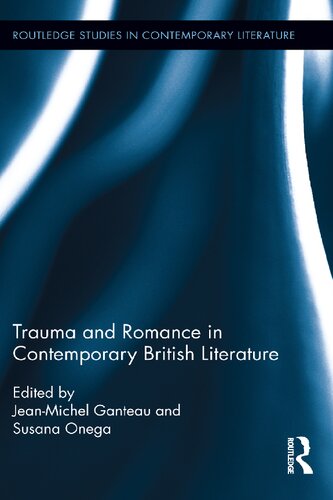

Most ebook files are in PDF format, so you can easily read them using various software such as Foxit Reader or directly on the Google Chrome browser.
Some ebook files are released by publishers in other formats such as .awz, .mobi, .epub, .fb2, etc. You may need to install specific software to read these formats on mobile/PC, such as Calibre.
Please read the tutorial at this link: https://ebookbell.com/faq
We offer FREE conversion to the popular formats you request; however, this may take some time. Therefore, right after payment, please email us, and we will try to provide the service as quickly as possible.
For some exceptional file formats or broken links (if any), please refrain from opening any disputes. Instead, email us first, and we will try to assist within a maximum of 6 hours.
EbookBell Team

4.4
42 reviewsDrawing on a variety of theoretical approaches including trauma theory, psychoanalysis, genre theory, narrative theory, theories of temporality, cultural theory, and ethics, this book breaks new ground in bringing together trauma and romance, two categories whose collaboration has never been addressed in such a systematic and in-depth way. The volume shows how romance strategies have become an essential component of trauma fiction in general and traumatic realism in particular. It brings to the fore the deconstructive powers of the darker type of romance and its adequacy to perform traumatic acting out and fragmentation. It also zooms in on the variations on the ghost story as medium for the evocation of trans-generational trauma, as well as on the therapeutic drive of romance that favors a narrative presentation of the working-through phase of trauma. Chapters explore various acceptations and extensions of psychic trauma, from the individual to the cultural, analyzing narrative texts that belong in various genres from the ghost story to the misery memoir to the graphic novel. The selection of primary sources allows for a review of leading contemporary British authors such as Peter Ackroyd, Martin Amis, Ian McEwan, Salman Rushdie, Graham Swift, Sarah Waters and Jeanette Winterson, and of those less canonical such as Jackie Kay, Alan Moore and Dave Gibbons, Justine Picardie, Peter Roche and Adam Thorpe.